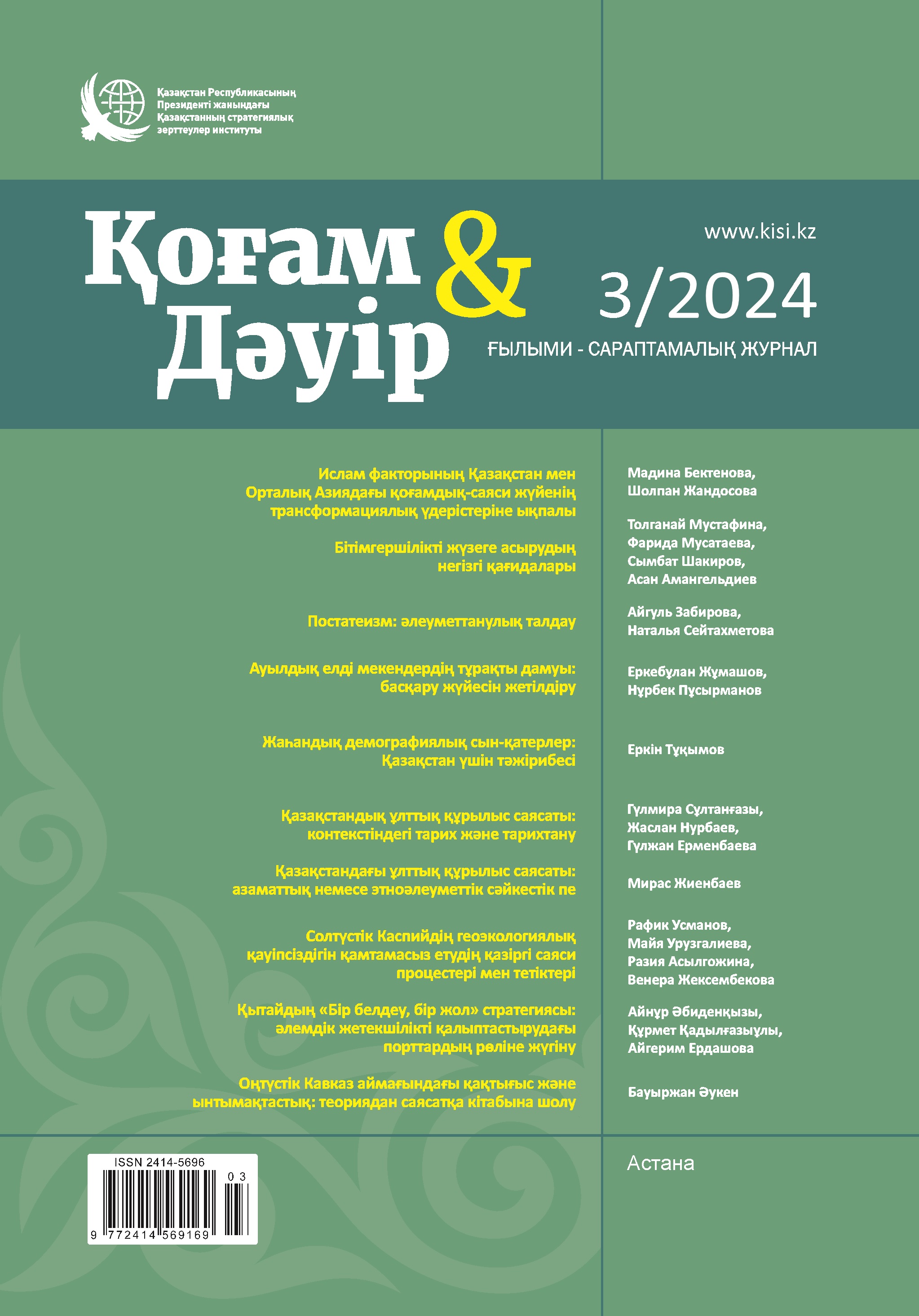Abstract
This study demonstrates how Kazakhstan, once entangled in the complex interaction between tradition and the challenges of modernity, is now actively shaping its national identity. Against the backdrop of the issues surrounding identity politics, nationalism, and post-Soviet transitional processes, this article sheds light on Kazakhstan's decisive steps in creating and exporting a unique national narrative in the realm of state-building.
This narrative goes beyond simple adaptation of external models and reflects the country's growing academic and intellectual contribution to the global discourse on national identity formation. The article examines the synthesis of governmental efforts, public knowledge, and practical ideology that underpins the formation of national policy. Special attention is given to the fact that in the post-socialist space, Kazakhstan does not merely adhere to a policy of “de-Sovietization” but also redefines its policy as an expression of sovereign identity and national leadership.
The study focuses primarily on the process of «Kazakhization» - a significant paradigm in the post-Soviet context. Unlike other post-Soviet narratives, which tend to criticize or deny history or use it merely as a political tool, the Kazakh approach is aimed at strengthening the multifaceted Kazakhstani identity. In this process, Kazakhstan balances between collective civic identity (Kazakhstani) and ethnonational Kazakh identity (Kazakh), reflecting a conscious departure from the rejection or opposition to the past. Instead, the country seeks to integrate and enhance its unique national essence.


